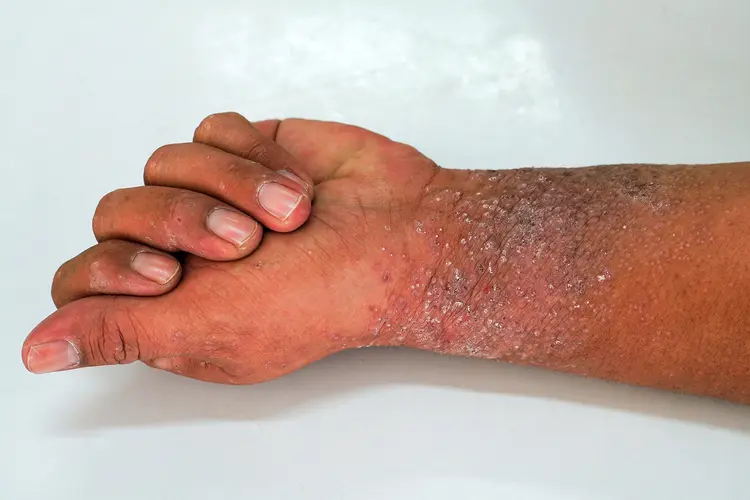When Should You See a Dermatologist for Itchy Skin

We all have itching from time to time, whether it's from a bug bite, dry weather, or contact with an irritant such as poison ivy. It's usually not anything bad and goes away by itself with a bit of moisturizer or an over-the-counter medication. But occasionally, itchy skin persists, spreads, or becomes so bad that it gets in the way of daily life and warns of some underlying problem that requires professional help.
If the discomfort lasts for more than a few days, worsens at night, or is accompanied by other unusual symptoms, it may be time to consult a skin specialist. Persistent itchy skin isn't just uncomfortable; it can lead to skin damage, infections, and indicate a deeper medical issue.
Understanding Itchy Skin: When It's More Than Just a Nuisance
Itchy skin, or pruritus, may be the result of anything from allergies and dry skin to long-standing skin diseases and ailments within the body. While the occasional itch is generally not a cause for worry, persistent or severe itching may indicate conditions such as eczema, psoriasis, dermatitis, kidney disease, or even nervous disorders.
In others, the skin may appear normal even though you are hurt. Sometimes, you see redness, blisters, bumps, scaling, or broken skin from scratching. If the itchiness is disrupting your sleep, your job, or your sanity, it's time to listen to your body and get help.
When to See a Dermatologist for Itchy Skin
These are the best indications that your itchy skin requires a dermatologist's attention:
1. It Takes Longer Than Two Weeks
If the itch endures for more than two weeks even after trying home remedies, it may be a sign that there is an underlying condition. Don't delay, seek help.
2. You Observe Visible Changes in Your Skin
Any new onset of rashes, redness, swelling, lumps, or scales needs to be assessed. A dermatologist will be able to tell whether it's a long-term skin condition, an allergy, or something different.
3. The Itching is Severe or Worse at Night
Severe, persistent itching, notably if worse at night and interfering with sleep, can necessitate prescription medications or diagnostic testing to determine the cause.
4. Over-the-Counter Medications Do Not Provide Relief
If moisturizing, antihistamines, or hydrocortisone creams have not brought relief, a dermatologist can prescribe more potent, more directed solutions.
5. Itching Spreads or Occurs Over Large Areas
When itchiness extends to several areas of your body or becomes generalized, it can be associated with systemic illnesses such as thyroid diseases, liver disease, or kidney disease.
Is Itchy Skin Associated with Other Skin Diseases?
It is frequent for itchy skin to co-occur with other dermatological conditions. Acne is one of the most common accompanying problems. Although acne more commonly manifests as pimples or plugged pores, it may also induce itching, particularly if the skin is inflamed or infected.
At times, acne treatments (such as retinoids or benzoyl peroxide) can dry out the skin, making it itchier and more prone to irritation. In those instances, a dermatologist will be able to assist you in finding a balance of treatment for breakouts and calming itchy skin.
Also, eczema, seborrheic dermatitis, and allergic reactions can mimic the appearance of acne in early stages, requiring professional diagnosis to treat effectively.
How a Dermatologist Can Help
A board-certified dermatologist will evaluate your signs and symptoms, check the affected skin, and may conduct diagnostic procedures such as patch testing, biopsies, or blood tests. They'll then customize a treatment regimen according to the underlying cause, which might involve:
- Prescription ointments or creams
- Antihistamines or anti-inflammatory drugs
- Phototherapy (light therapy) for long-term illnesses
- Lifestyle or skincare modifications to minimize triggers
Conclusion
Itchy skin is not necessarily harmless. If it's persistent, spreading, or interfering with your quality of life, don't brush it off. A dermatologist can determine the cause and provide real, long-term relief, while keeping your skin healthy and looking its best.
If you're also dealing with other related skin conditions such as acne, a visit to a dermatologist can provide an overall treatment plan that gets several problems under control simultaneously.








